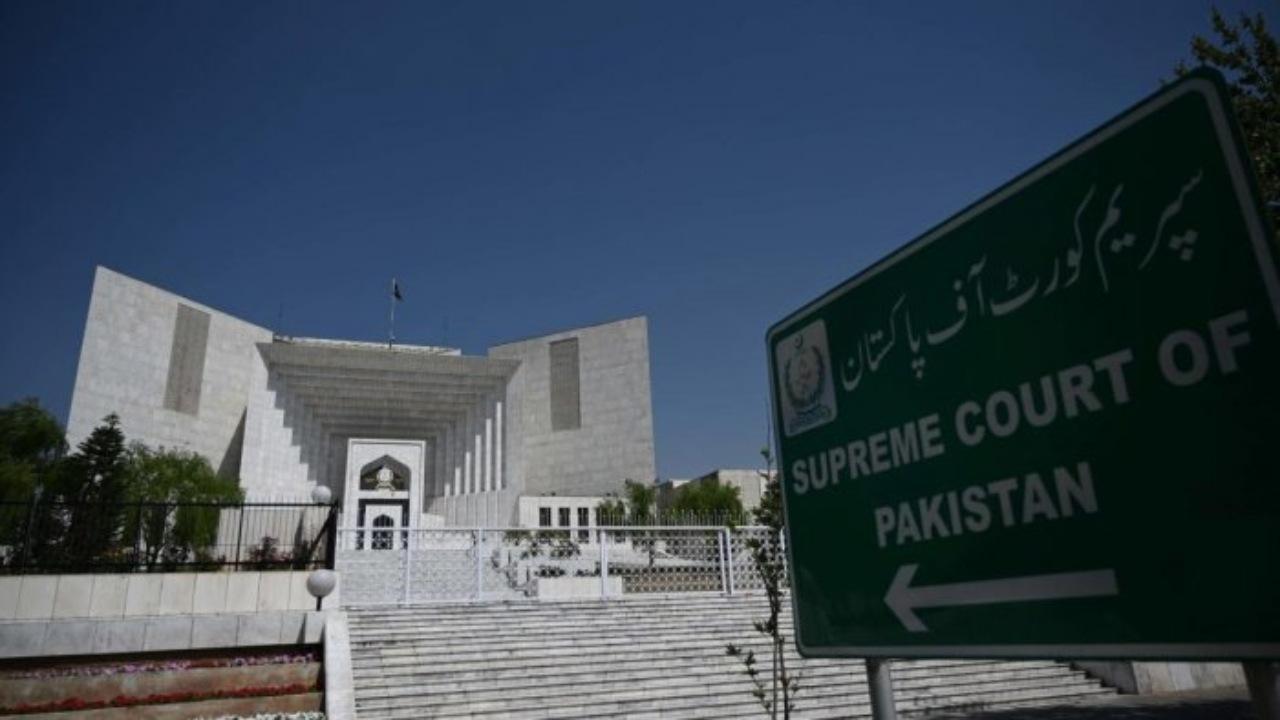Pakistan's Supreme Court on Monday urged the federal government and the opposition to resume dialogue for restoring peace in the country as the apex court adjourned for one week the hearing on the election commission's plea on the impasse over holding elections in Punjab province

A general view of the Pakistan's Supreme Court is pictured in Islamabad. Photo/AFP
Pakistan's Supreme Court on Monday urged the federal government and the opposition to resume dialogue for restoring peace in the country as the apex court adjourned for one week the hearing on the election commission's plea on the impasse over holding elections in Punjab province.
ADVERTISEMENT
The apex court had previously ordered the Election Commission of Pakistan (ECP) to hold elections in the politically crucial province on May 14.
A three-judge bench, led by Chief Justice Umar Ata Bandial and comprising Justice Ijazul Ahsan and Justice Munib Akhtar, heard the matter on Monday as the May 14 deadline for holding the polls expired on Sunday.
The chief justice noted that the election commission's stance was that it would conduct elections if given the resources. He continued that the ECP had now opened the "Pandora's Box".
Justice Bandial maintained that he had asked the government and the opposition to find high moral standards.
Further hearing of the case was adjourned till next week, the Express Tribune newspaper reported.
PTI lawyer Ali Zafar argued that one week was "too much", however, the CJP stated that the court had another "important matter tomorrow".
According to Justice Bandial, the court would have hurried if it knew that election time had come. He added that the manner in which political forces were working was "not right".
Bandial also told the PTI lawyer to inform the party's leadership of how elections could be held in a polarised manner. "You will have to create a high moral ground," he said, adding that holding elections in 90 days was the main matter.
There was a deadlock between the federal government and Imran Khan-led Pakistan Tehreek-e-Insaf (PTI) party over the holding of polls in Punjab province. However, the coalition government and former prime minister Khan's party made "big progress" earlier this month after they agreed to hold general elections in the entire country on the same day but still differed on the date of the polls.
Also read: Those involved in violence will face terrorism trials, Shahbaz Sharif warns
The court in its April 4 directive also asked the cash-strapped federal government to provide Rs 21 billion for the elections in Punjab and Khyber Pakhtunkhwa by April 10 and make available all the necessary security personnel to keep peace on the polling day, but the government failed to fulfil either of the two by citing financial and security reasons.
Instead of providing funds, the government played delaying tactics and took the issue to the Parliament which refused to endorse a money bill seeking funds for elections.
The government and opposition Pakistan Tehreek-e-Insaf began talks on April 27 to solve the issue of elections and reported a consensus on holding elections simultaneously across the country. However, an impasse on the date of polling stopped further progress when the third and last round ended on May 2.
The ECP on May 3 approached the court seeking a review of its order to hold polls on May 14.
The issue of elections has rocked Pakistani politics as Khan demanded snap polls when he was voted out of power in April last year. As he failed to get his goal through protest, Khan dissolved the assemblies in Punjab and Khyber-Pakhtunkhwa in January by using his party's governments in the two provinces.
Under the law, elections should be held within 90 days of the dissolution of an assembly.
The PTI dissolved the Punjab and Khyber Pakhtunkhwa assemblies on January 14 and 18, respectively, in a bid to force the ruling coalition in Islamabad to hold early general elections in the country.
The National Assembly will complete its five-year term in August this year.
According to the Constitution, elections shall be held within 90 days after the dissolution of the lower house. This means that the election must be held by mid-October. The last general election was held in July 2018.
This story has been sourced from a third party syndicated feed, agencies. Mid-day accepts no responsibility or liability for its dependability, trustworthiness, reliability and data of the text. Mid-day management/mid-day.com reserves the sole right to alter, delete or remove (without notice) the content in its absolute discretion for any reason whatsoever.
 Subscribe today by clicking the link and stay updated with the latest news!" Click here!
Subscribe today by clicking the link and stay updated with the latest news!" Click here!







